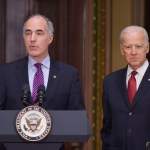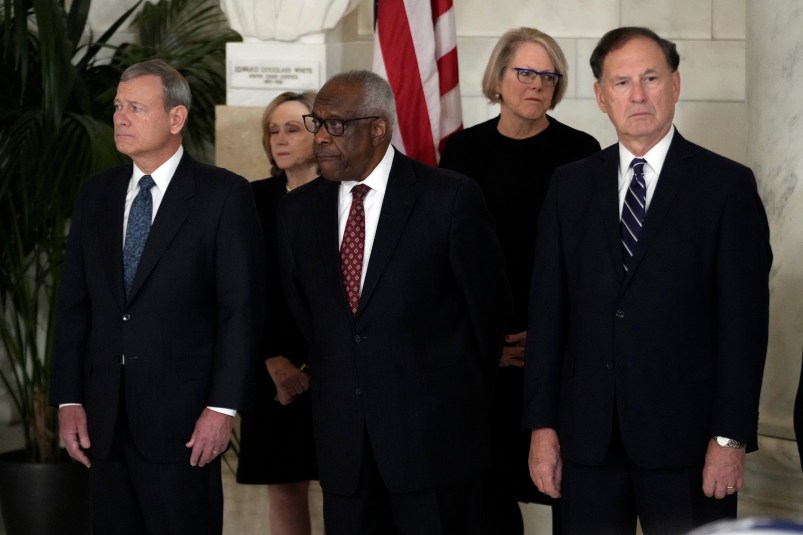I’d be very curious to hear the backstory on this article in the Times. It’s a follow-on piece on the Franklin investigation at the Pentagon, entitled ‘Spy Case Renews Debate Over Pro-Israel Lobby’s Ties to Pentagon.’
It might have been better titled — All Neocons Get to Place Quotes Saying They Were Framed By CIA, FBI, Other Establishment Wusses.
Whenever the neocons come under investigative scrutiny their defense is always that the investigations are a put-up by their bureaucratic enemies. And this piece seems almost entirely devoted to their unsubstantiated claims of the same.
Bureaucratic infighting happens of course. But these investigations are far more frequently the result of their recklessness, indifference to procedure and simple bad-acts.
On a deeper level, the defense is related to a mindset we often see in their analysis of intelligence. Just as they tend to discount the idea of disinterested intelligence analysis — i.e., analysis that is not simply a cover for ideologically-driven opinion — they are similarly unable or unwilling to see investigations such as these as anything other than a manifestation of ideological turf wars inside the executive branch.
Needless to say, I don’t impute such views to all who could be classed as having ‘neo-conservative’ ideas or foreign policy views. But it is very much the case with this particular crew of neoconservative national security street-fighters who circulate in and out of government.
Along those lines, there is also a veritable smorgasbord of schadenfreude contained in this Times article on Richard Perle’s latest troubles in the multiple investigations into Hollinger Inc.
Last we left this story, the report into the looting of the corporation had found that Hollinger was “an entity in which ethical corruption was a defining characteristic.” And having found the management of the company to be such a model of integrity, the report went on to reserve its harshest criticisms for Perle, accusing him or “putting his own interests about those of Hollinger’s shareholders” and “repeatedly breach[ing] his fiducicary duties.”
Some passages seem worth quoting in their entirety …
With the notable exception of Perle, none of Hollingerâs non-Black Group directors derived any financial or other improper personal benefits from their service on Hollingerâs Board. Unlike Black and Radler, Hollingerâs independent directors did not enrich themselves at the Companyâs expense, did not misappropriate corporate opportunities belonging to Hollinger, and did not in any other way engage in self-dealing … It is, of course, possible for a conflicted board member to act at least somewhat responsibly. As a conflicted executive committee member, however, Perle did not. Rather, his executive committee performance falls squarely into the ‘head-in-the-sand’ behavior that breaches a director’s duty of good faith and renders him liable for damages.
In the latest turn of events, Perle has turned on Conrad Black. In a statement Perle released from his redoubt in the south of France, he now says that the conniving Black pulled the wool over his eyes. Perle of course was duped and given millions of dollars in the process, unlike the shareholders in the company who were duped and fleeced of their assets. So it seems things could be worse for him.
Along the lines noted at the head of this post, when I first heard about this, I was almost tempted to wonder when we’d hear that the Breedon Report — the one which points such a finger of blame at Perle — was actually a put up job by the Arabists at the CIA. But apparently this is a case where humor can’t outrun sorry reality. In the words of the Times, “Mr. Perle’s friends say that he is the victim of unjustified attacks that are motivated more by policy vendettas than substance.”
And one other passage from the Times article that is worth noting …
But others who have known Mr. Perle over the years say that he has been a consummate risk taker in both his business dealings and in some of the foreign policies he advocated, and that he ultimately may have been lured by millions of dollars in compensation and benefits to put aside ethical considerations, as the Breeden report concluded.
“Richard has always been willing to take the highest risks, playing for the highest stakes on policy issues over the years and often winning, but this is also really a story of being seduced by money,” said Mr. Gelb, a former official at the State and Defense departments and a former columnist at The New York Times. “People in the foreign policy world do not make a lot of money. They go to think tanks, government, academe, and generally get $125,000 to $150,000 a year. When you are touched by lightning and manage to get into the inner sanctum to make money, the opportunities are delicious.”
High-risk gamesmanship on other people’s dime, cutting ethical and legal corners, blaming it on someone else when the racket goes south … Sound like anything else Mr. Perle’s been associated with recently?







